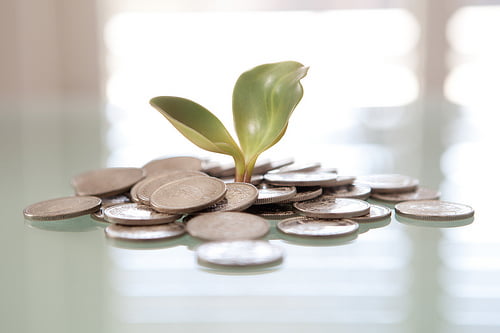

Economy
Sustainable investment flourishes amongst European high net-worth individuals
A report by the European Sustainable Investment Forum (Eurosif) has found that high net-worth individuals (HNWIs) in Europe have strengthened their commitment to sustainable investment, causing the sector to grow steadily.
The organisation’s third High Net-Worth Individuals and Sustainable Investment study found that over the past two years, sustainable investments made by HNWIs in Europe have increased by almost 60% – compared to just an 18% rise in the total wealth in this demographic.
The encouraging increase means that there is now some €1.15 trillion invested sustainably across Europe – 57% higher than 2009 figures. Eurosif says this reflects “persistent demand even in volatile markets”.
The bulk of European sustainable investment’s growth comes from the entrance of new clients (44%), while net new inflows from existing wealth owners also played a significant role (37%). The remaining 19% can be attributed to the appreciation of existing wealth.
“The value proposition of sustainable investment and impact investing, combining both financial interests with sustainability concerns, make these strategies a valuable fit with any HNWI investment portfolio”, said Eurosif executive director François Passant.
“The fact that many HNWIs who have tested sustainable investments are shifting more assets into these strategies reflects that.
“This should be no surprise, even in terms of great market uncertainty, as the effects of these strategies are magnified over time and align well with the long term perspective and wealth preservation objectives of HNWIs.”
Clean energy and water were the two most common sustainability themes used by European sustainable investors in 2011, but a multi-thematic approach has become more common as HNWIs look to diversify their portfolios across a number of areas.
However, other sustainability themes such as green technology, climate change and health/life quality experienced similarly significant growth in investment. “This indicates that HNWIs are increasingly open to supporting a range of themes, not just the traditional ones”, the Eurosif study states.
Impact investment, which focuses on the difference that can be made by investing, was included in the report for the first time. Micro-finance (43%), social business (33%) and local community investments (20%) were the three most popular investment strategies used by European HNWIs in 2011.
Motivations behind impact investing vary – the most common incentive being the desire to contribute to sustainable development (23%). However, using impact investment as an alternative to philanthropy (17%) and contributing to local community development (14%) were also popular drivers, while 11% of investors simply see this form of investment as a good financial opportunity.
Blue & Green Tomorrow’s recent Guide to Sustainable Investment, which was written and published as part of National Ethical Investment Week, hears from some of the sector’s biggest names in an attempt to highlight the many advantages of investing in this way.
The Eurosif study shows that appetite for sustainable investment is at an all-time high. It makes not only ethical and moral sense to opt to invest your money sustainably, but also financial sense.
It’s important not to let the media put you off from allowing your money to make a difference, so seeking advice from a specialist ethical financial adviser who knows what they’re talking about is the wisest initial step to take.
Further reading:
Drop in ethical fund sales part of a ‘general decline’
Investing sustainably is a ‘clear win’ says study
Analysis shows the ‘superior performance’ of sustainable investment
































